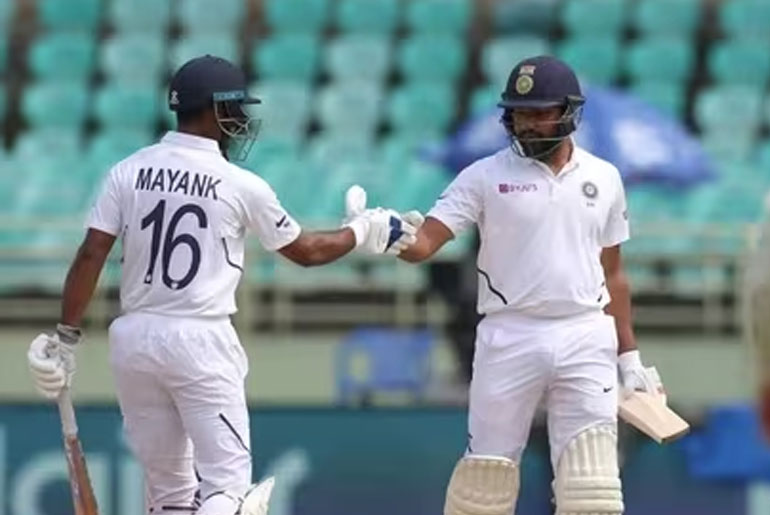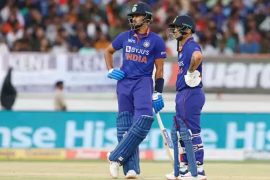The Dr. YS Rajashekar Reddy ACA–VDCA Cricket Stadium in Visakhapatnam, though relatively new in international cricket, particularly for Test matches, has quickly gained attention as a significant venue. This stadium is currently hosting the second Test match between India and England. The match comes at a crucial juncture, with India seeking to bounce back after a surprising defeat in the first Test in Hyderabad.
In the initial stages of the first Test, India seemed to be in control, having taken a significant 190-run lead in the first innings and reducing England to a precarious 163/5 in their second innings. However, England’s batsman Ollie Pope staged a remarkable rearguard action, scoring a splendid 196 runs. His performance, coupled with a remarkable bowling display by debutant spinner Tom Hartley, who claimed 7 wickets for 62 runs, turned the tide in England’s favor.
Despite India’s efforts to chase down the target of 231 runs set by England, they fell short by 28 runs, resulting in an unexpected defeat. The match outcome has added an intriguing twist to the series, with India facing a rare challenge on home soil.
While the YSR ACA-VDCA Stadium has hosted a significant number of ODIs and T20Is since its establishment, it has only hosted a limited number of Test matches. However, its modern facilities and growing reputation make it an exciting addition to India’s cricketing landscape. As the series progresses, all eyes will be on this venue to see how the teams perform in what promises to be an enthralling contest.
Test matches in the past:
The YSR ACA–VDCA Cricket Stadium in Visakhapatnam has hosted two Test matches in the past, both of which have left a mark in the history of Indian cricket.
The first Test at this venue took place from November 17 to 21 in 2016, featuring a clash between India and England. Opting to bat first after winning the toss, India faced early setbacks with openers Murali Vijay and KL Rahul dismissed in the first five overs. However, the team recovered with centuries from Virat Kohli (167) and Cheteshwar Pujara (119), along with a half-century from Ravichandran Ashwin (58), enabling them to post a substantial total of 455. Ashwin then showcased his prowess with the ball, claiming a five-wicket haul as England was bowled out for 255. Setting a target of 405 in the second innings, India’s bowlers, led by Ashwin and Jayant Yadav, orchestrated a comprehensive victory as England was bowled out for 158, securing a 246-run win for India.
The second Test at Stadium in Visakhapatnam occurred in 2019, marking a significant turning point in the career of India’s current captain, Rohit Sharma. Known for his limited-overs exploits, Rohit was given the role of an opener for the first time in Tests. In the match against South Africa, Rohit immediately made an impact, forging a massive 317-run opening partnership with Mayank Agarwal. Rohit scored 176, while Agarwal notched up 215, contributing to India’s declaration at 502/7. In response, South Africa showed resilience with centuries from Dean Elgar (160) and Quinton de Kock (111), but Ashwin’s seven-wicket haul limited them to 431. Rohit continued his stellar performance in the second innings, becoming the first player to score two centuries in his first Test as an opener. India declared at 323/4, setting a target of 395 for South Africa, who were eventually bowled out for 191. The match concluded with India securing a convincing 203-run victory. These Test matches have added to the significance of Stadium in Visakhapatnam as an emerging and impactful venue in the world of cricket.
Disclaimer:
The information contained in this article is for educational and informational purposes only and is not intended as a health advice. We would ask you to consult a qualified professional or medical expert to gain additional knowledge before you choose to consume any product or perform any exercise.







